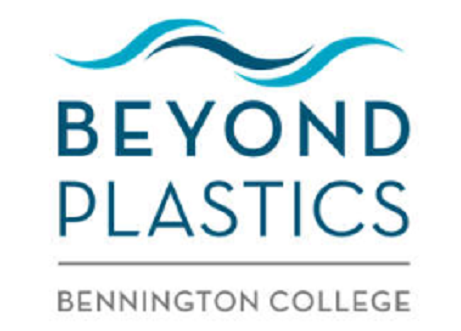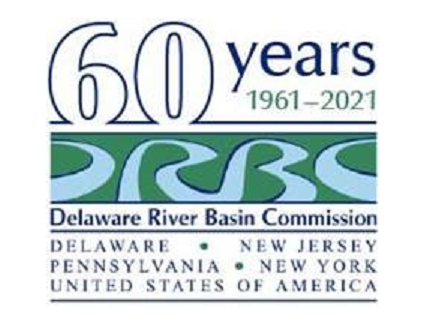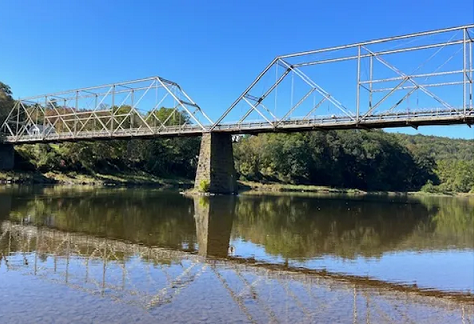
NY DEC Denies Permit for Danskammer Power Plant near Newburgh
October 28, 2021
The New Coal: Plastics and Climate Change
October 30, 2021It looks as if the DRBC came through and banned waste water import and treatment, and virtually all, if not all, export of fresh water for fracking. But the devil’s in the details, so we’re not celebrating yet. For example, “importations of water or wastewater that meet the Commission’s existing thresholds for review” will be regulated. What are the thresholds and does that mean in practice?
YOU can help ensure that a FULL BAN is enacted by making a comment to the DRBC or attending one of their upcoming meetings. Together, we can make a FULL BAN a reality!
N E W S R E L E A S E
DELAWARE RIVER BASIN COMMISSION
P.O. Box 7360, 25 Cosey Road
West Trenton, NJ 08628
FOR IMMEDIATE RELEASE
CONTACTS: Kate Schmidt and Elizabeth Koniers Brown
DRBC Publishes Proposed Regulations Addressing Importation and Exportation of Water and the Discharge of Wastewater from High Volume Hydraulic Fracturing
WEST TRENTON, N.J. (October 28) – The Delaware River Basin Commission (DRBC or Commission) today posted on its web site draft amendments to its Water Code, Special Regulations and Water Quality Regulations.
Briefly, the proposed amendments address:
- Wastewater from High Volume Hydraulic Fracturing (HVHF): The proposed amendments to DRBC’s Special Regulations, Part 440—High Volume Hydraulic Fracturing (HVHF) include a determination that the discharge of wastewater from HVHF and HVHF-related activities poses significant, immediate and long-term risks to the Basin’s water resources and that controlling future pollution by prohibiting such discharges within the Basin is required to effectuate the Commission’s Comprehensive Plan. This determination is accompanied by related definitions and a prohibition on the discharge of wastewater from HVHF and HVHF-related activities to waters or land within the Basin.
- Water Exportation: The Commission’s policy has been to discourage the exportation of water from the Basin. The draft amendments establish the circumstances under which proposed exportations that meet the Commission’s existing threshold for review may be considered for approval. Under the proposed rule, the Commission may approve an exportation of water if the export is needed to serve a straddled or adjacent public water system; if it is required on a temporary, short-term, or emergency basis to meet public health and safety needs; or if it comprises an exportation of wastewater. The Commission will require an analysis of alternatives to the proposed exportation and will consider in its review, factors that include the effects of the proposal on public health and safety and the effectuation of its Comprehensive Plan.
- Water Importation: The proposed regulations clarify the factors the Commission will use in evaluating proposed importations of water or wastewater that meet the Commission’s existing thresholds for review.Although importations of wastewater are “discouraged,” they may be permitted after careful consideration to ensure that available alternatives have been evaluated, treatment is employed to ensure applicable water quality criteria are achieved, restoration efforts are not impeded, and uses incorporated in the Commission’s Comprehensive Plan are protected.
- Water Quality Regulations: To facilitate the alignment of certain Basin state discharge permits with the proposed Special Regulations regarding wastewater from high volume hydraulic fracturing, the Commission proposes to amend its Water Quality Regulations Article 4—Application of Standards to incorporate into this article the determination, relevant definitions, and prohibition on the discharge of wastewater from HVHF and HVHF-related activities described above.
The full text of the draft rules, related materials, and information on the public comment process are set forth in a Notice of Proposed Rulemaking that can be viewed on the Commission’s web site at https://www.nj.gov/drbc/meetings/proposed/notice_import-export-rules.html.
To reduce uncertainty on the part of attendees about whether they will have an opportunity to speak at a public hearing, to provide an orderly process, and to support public and community health measures, the Commission is conducting its public hearings virtually via Zoom Webinar. Although attendance at the hearings is not limited and requires no registration, those who wish to provide oral comment at a hearing must register in advance to do so. Registrations will be monitored, and if capacity is not adequate to accommodate all who wish to speak, additional public hearing opportunities will be considered.
The public hearings will take place as follows:
- Public Hearing No. 1: Wednesday, Dec. 8, from 2:30 p.m. to no later than 4:30 p.m. Individuals who wish to comment on the record are asked to sign up in advance through Eventbrite by 5:00 p.m., Dec. 7 at https://bit.ly/3aZxiKH
- Public Hearing No. 2: Wednesday, Dec. 8, from 6:30 p.m. to no later than 8:30 p.m. Individuals who wished to comment on the record are asked to sign up in advance through Eventbrite by 5:00 p.m., Dec. 7 at https://bit.ly/3B9MP58
- Public Hearing No. 3: Wednesday, Dec. 15, from 1:00 p.m. to no later than 3:00 p.m. Individuals who wish to comment on the record are asked to sign up in advance through Eventbrite by 5:00 p.m., Dec. 14 at https://bit.ly/3GfID7U
- Public Hearing No. 4: Wednesday, Dec. 15, from 4:00 p.m. to no later than 6:00 p.m. Individuals who wish to comment on the record are asked to sign up in advance through Eventbrite by 5:00 p.m., Dec. 14 at https://bit.ly/3m6SAfS
The Commission also invites written comment on the draft regulations. Written comments will receive the same consideration as oral comments, and may be submitted until 5 p.m., Jan. 28, 2022. For additional information regarding the content of written comments, please see the Commission’s Notice of Proposed Rulemaking at the link provided above.
To ensure all written comments and attachments are received and acknowledged, they must be submitted through the Commission’s online comments webpage at https://dockets.drbc.commentinput.com/?id=x2K8A. Written comments submitted by other methods will not be accepted unless an express exception has been granted based on lack of access to the web-based system. Requests for exceptions may be addressed to: Commission Secretary, DRBC, P.O. Box 7360, West Trenton, NJ 08628.
The DRBC is a federal/interstate government agency created in 1961 by concurrent compact legislation, marking the first time that the federal government and a group of states joined together as equal partners in a river basin planning, development and regulatory agency. The five Commission members are the governors of the Basin states (Delaware, New Jersey, New York and Pennsylvania) and the commander of the U.S. Army Corps of Engineers’ North Atlantic Division, who represents the federal government.
To learn more about the Commission, please visit www.drbc.gov or follow DRBC on Twitter at @DRBC1961.
Kate Schmidt
Communications Specialist
Delaware River Basin Commission
P.O. Box 7360
West Trenton, NJ 08628-0360
Kate.Schmidt@drbc.gov
www.drbc.gov




